The Greatest Silence: Rape in the Congo is a american film of genre Documentary released in USA on 1 january 2007
The Greatest Silence: Rape in the Congo (2007)
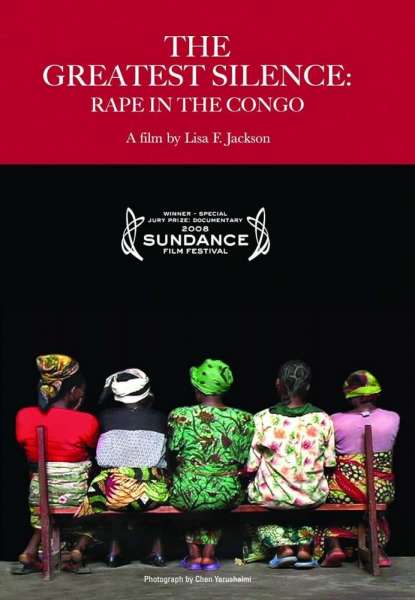
If you like this film, let us know!
Released in USA 1 january 2007
Length 1h16
OriginUSA
Genres Documentary
Themes Films set in Africa, Films about immigration, Documentary films about law, Documentary films about war, Documentary films about historical events, Documentaire sur une personnalité
Rating71%










The Greatest Silence: Rape in the Congo is a 2007 documentary film directed by Lisa F. Jackson concerned with survivors of rape in the regions affected by
ongoing conflicts stemming from the Second Congo War. Central to the film are moving interviews with the survivors themselves, as well as interviews with self-confessed rapist soldiers. The Greatest Silence was nominated for a Grand Jury Prize and won a Special Jury Prize at the 2008 Sundance Film Festival. It was also nominated for two News & Documentary Emmy Awards in 2009. It aired on HBO in January & February 2009.
Synopsis
In 2006, producer/director Lisa F. Jackson travelled alone to the war zones of the Democratic Republic of the Congo documenting the plight of women and girls impacted by the conflicts there. She was "afforded privileged access" to the realities of life in Congo, and found "examples of resiliency, resistance, courage and grace". In a 2008 interview with NPR, Jackson said "I knew going to eastern Congo as a white woman alone in the bush with a video camera that I might as well have landed from a spaceship." Jackson had been a victim of gang rape thirty years earlier, and shared this experience with the survivors she interviewed. Much of the film features these women recounting their stories, which have left them "traumatised and isolated - shunned by society and their families, and suffering life-long health effects, including HIV." Context and background are discussed in interviews with doctors, politicians, peacekeepers, activists and priests. Jackson visits a clinic devoted to treating women with traumatic injury due to sexual violence, particularly cases of vesicovaginal and rectovaginal fistula. In addition, Jackson went out into the bush to interview some of the perpetrators, soldiers who spoke without apparent conscience about the women they had raped, and their often bizarre justifications. "You really can say that there's a culture of impunity in the Congo, where none of these men will face arrest for what they've confessed to me on videotape," Jackson noted. The focus of the film, though, is the stories of the victims, "who just poured their hearts out to me with these stories, including over and over again, please take these stories to someone who will make a difference.Comments
Leave comment :
Suggestions of similar film to The Greatest Silence: Rape in the Congo
There are 8965 with the same cinematographic genres, 5386 films with the same themes (including 8 films with the same 6 themes than The Greatest Silence: Rape in the Congo), to have finally 70 suggestions of similar films.If you liked The Greatest Silence: Rape in the Congo, you will probably like those similar films :
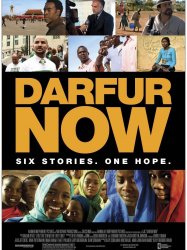
Darfur Now (2007)
, 1h38Directed by Ted Braun
Origin USA
Genres Documentary, Crime
Themes Films set in Africa, Films about immigration, Documentary films about law, Documentary films about war, Documentary films about historical events, Documentaire sur une personnalité, Documentary films about politics, Political films
Actors Don Cheadle, George Clooney, Arnold Schwarzenegger
Rating66%






God Grew Tired of Us (2007)
, 1h26Genres Documentary
Themes Films set in Africa, Films about children, Films about immigration, Documentary films about law, Documentary films about war, Documentary films about historical events, Documentaire sur une personnalité
Actors Nicole Kidman
Rating78%





God Grew Tired Of Us chronicles the arduous journey of three young Southern Sudanese men, John Bul Dau, Daniel Pach and Panther Bior, to the United States where they strive for a brighter future. As young boys in the 1980s, they had walked a thousand miles to escape their war-ridden homeland, and then had to make another arduous journey to escape Ethiopia.
 , 52minutes
, 52minutesOrigin Algerie
Genres Documentary
Themes Films set in Africa, Films about immigration, Documentary films about law, Documentary films about war, Documentary films about historical events, Documentaire sur une personnalité, Documentary films about politics, Political films
In 1939, the end of the Spanish Civil War forced thousands of men, women and children to flee Francoist Spain. The French administration in Algeria opened refugee camps to take them in. Seventy years later, a young Algerian investigates the past. Despite the absence of archives and files, the traces of these camps have survived the collective oblivion and still appear in current Algeria.

Lost Boys of Sudan (2003)
, 1h27Genres Documentary
Themes Films set in Africa, Films about children, Films about immigration, Documentary films about law, Documentary films about war, Documentary films about historical events, Documentaire sur une personnalité
Rating74%






The Dream (1987)
, 45minutesDirected by Mohamed Malas
Genres Documentary
Themes Films set in Africa, Films about immigration, Films about religion, Documentary films about law, Documentary films about war, Documentary films about historical events, Documentaire sur une personnalité, Documentary films about religion, Political films, Films about Jews and Judaism
Rating62%





The film was composed of several interviews with different Palestinian refugees including children, women, old people, and militants from the refugee camps in Lebanon. In the interviews Malas questions his subjects about their dreams at night. Through their answers, the film attempts to reveal the underlying subconsciousness of the Palestinian refugee. The dreams always converge on Palestine; a woman recounts her dreams about winning the war; a fedai of bombardment and martyrdom; and one man tells of a dream where he meets and is ignored by Gulf emirs. According to Rebecca Porteous, the film constructs "the psychology of dispossession; the daily reality behind those slogans of nationhood, freedom, land and resistance, for people who have lost all of these things, except their recourse to the last.
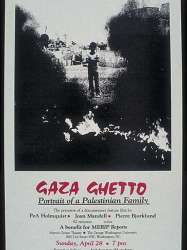
Gaza Ghetto (1984)
Genres Documentary
Themes Films set in Africa, Films about families, Films about immigration, Films about religion, Documentary films about law, Documentary films about war, Documentary films about historical events, Documentaire sur une personnalité, Documentary films about politics, Documentary films about religion, Political films, Films about Jews and Judaism
Rating56%






The Forgotten Refugees (2005)
, 49minutesGenres Documentary
Themes Films set in Africa, Films about immigration, Films about religion, Documentary films about law, Documentary films about war, Documentary films about historical events, Documentaire sur une personnalité, Documentary films about religion, Political films, Films about Jews and Judaism

Nicky's Family (2011)
, 1h36Directed by Matej Mináč
Genres Drama, Documentary
Themes Films about immigration, Films about racism, Films about religion, Documentary films about racism, Documentary films about law, Documentary films about war, Documentary films about historical events, Documentaire sur une personnalité, Documentary films about religion, Political films, Films about Jews and Judaism, Documentary films about World War II
Actors Klara Issova
Rating80%





"La famille de Nicky" est l'histoire extraordinaire de Nicholas Winton, surnommé le Schnindler britannique, qui avant le début de la seconde guerre mondiale, entre mars et août 1939, a sauvé 669 enfants tchèques et slovaques, pour la plupart juifs, du génocide nazi. Le film mêle fiction, documents d'archives inédits, et témoignages émouvants des protagonistes de cette histoire, parmi lesquels Nicholas Winton en personne et Joe Schlesinger, journaliste à la CBC et narrateur du film. La "famille" de Nicholas Winton compte aujourd'hui plus de 5 000 personnes dans le monde entier, qui lui doivent la vie.
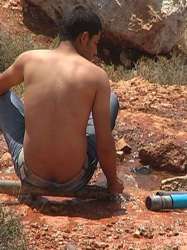
Interrupted Streams (2010)
, 1h15Origin Israel
Genres Documentary
Themes Films set in Africa, Environmental films, Films about religion, Documentary films about law, Documentary films about environmental issues, Documentary films about war, Documentary films about historical events, Documentaire sur une personnalité, Documentary films about politics, Documentary films about religion, Political films, Films about Jews and Judaism
Paths of lives are crossed in one village in the West Bank. Along the broken water pipelines, villagers walk on their courses towards an indefinite future. Israel that controls the water, supplies only a small amount of water, and when the water streams are not certain nothing can evolve. The control over the water pressure not only dominates every aspect of life but also dominates the spirit. Bil-in, without spring water, is one of the first villages of the West Bank where a modern water infrastructure was set up. Many villagers took it as a sign of progress, others as a source of bitterness. The pipe-water was used to influence the people so they would co-operate with Israel’s intelligence. The rip tore down the village. Returning to the ancient technique of collecting rainwater-using pits could be the villagers’ way to express independence but the relations between people will doubtfully be healed.
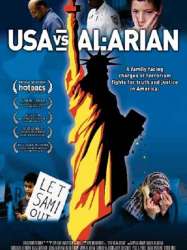
USA vs. Al-Arian (2007)
, 1h42Genres Documentary
Themes Films set in Africa, Films about religion, Films about terrorism, Documentary films about law, Documentary films about war, Documentary films about historical events, Documentaire sur une personnalité, Documentary films about politics, Documentary films about religion, Documentary films about terrorism, Political films, Films about Jews and Judaism
Rating70%





 Connection
Connection